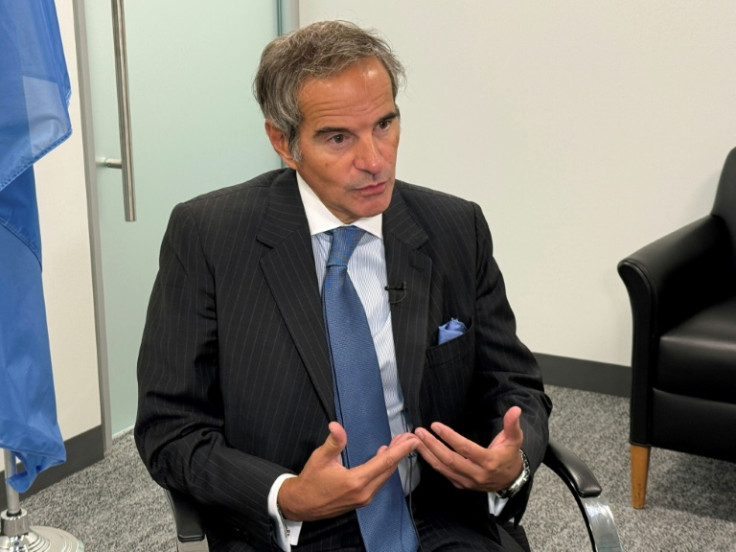IAEA Says Iran Nuclear Diplomacy At a 'Difficult Juncture'

The head of the UN's nuclear watchdog, Rafael Grossi, told AFP Monday that diplomatic efforts to resolve the dispute over Iran's nuclear program were at a "difficult juncture" but dialogue would continue.
The UN Security Council voted on Friday to reimpose UN sanctions that had been frozen, after three European governments activated the "snapback" mechanism in a decade-old nuclear agreement, accusing Iran of non-compliance.
"It's obviously quite a difficult juncture. It's a very difficult situation we are facing right now," the International Atomic Energy Agency chief said, adding that talks between involved parties were planned in New York for Monday.
"What's important is the communications are continuing. We are planning to see each other if possible today, Monday, here in New York, and perhaps more meetings during the week."
Friday's vote means that the sanctions, which were suspended in return for curbs on Iran's nuclear activities set out in the 2015 deal, will take effect again on September 28 unless Iran can persuade the council to relent in the next week.
Tehran said the action by the European powers -- Britain, France and Germany -- undermined months of engagement with the IAEA aimed at resuming monitoring and ensuring compliance with international rules.
Grossi praised the active diplomacy of French President Emmanuel Macron to salvage a deal, and said that there were still lines of communication between Tehran and Washington.
"Emmanuel Macron is very present, has been historically, and I respect him enormously," Grossi said.
"I think the Special Envoy, Ambassador (Steve) Witkoff, has also been involved and actively exploring different channels and presenting a number of ideas," Grossi said.
Grossi said his dialog with Witkoff had enabled him to understand Washington's position and red lines.
"And the IAEA is not a party to the agreement -- but it's indispensable in every scenario. So we continue the work with Ambassador Witkoff," Grossi said.
Earlier this month, Iran and the IAEA reached an agreement in Cairo that would have allowed inspections of Iranian nuclear sites to resume.
Iran had suspended them after Israel and the United States attacked its nuclear facilities in June.
Western governments have long accused Iran of seeking a nuclear weapons capability, an ambition Tehran denies.
Tehran has also criticized the IAEA for failing to condemn the Israeli and US strikes.
Paris, London, and Berlin have stressed their demands that the Islamic Republic grant IAEA inspectors full access to nuclear sites, including those damaged by Israeli and American attacks last June.
They also call for a resumption of negotiations, particularly with the US side.
Tehran says it is resisting political pressure and accuses the Europeans of not taking up a "balanced" proposal, the details of which have not been disclosed.
"We are not at a point where people are not talking to each other, and you have to convince them to come together," Grossi said.
"So does that mean that I am optimistic? Well, neither optimistic nor pessimistic," he said adding that he remained hopeful that "we can still have an agreement."
"If we don't have it, I think we have to try to (right) the boat as soon as possible to avoid prolonged confrontation and perhaps more attacks."
Grossi also said he would seek to succeed Antonio Guterres as Secretary-General of the UN when his term ends in December 2026.
© Copyright AFP {{Year}}. All rights reserved.





















